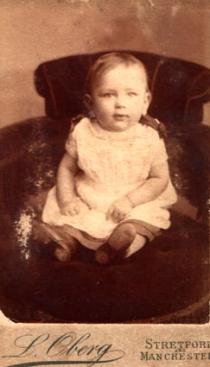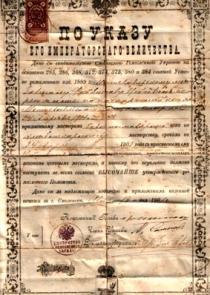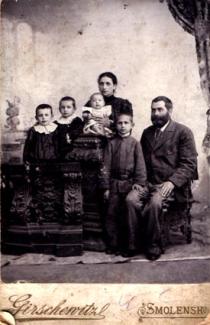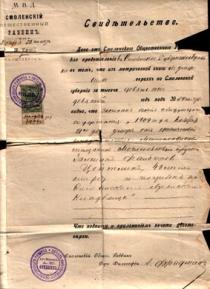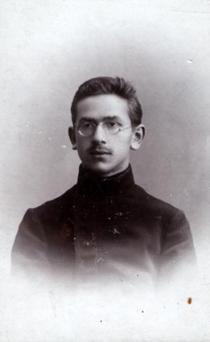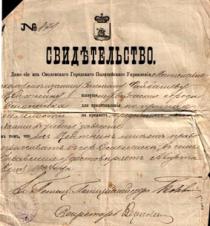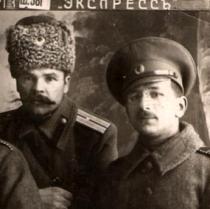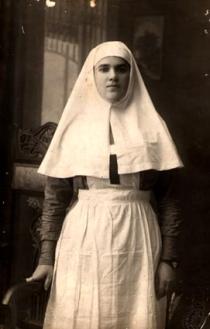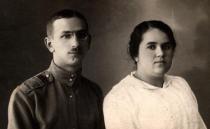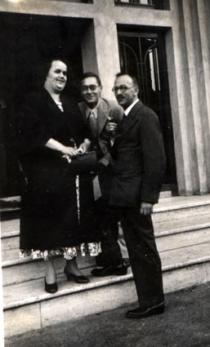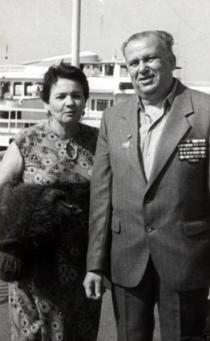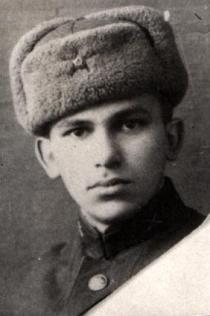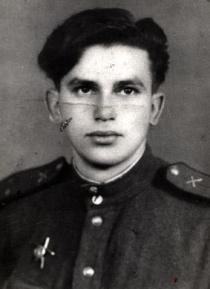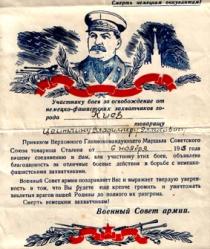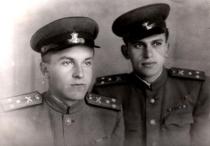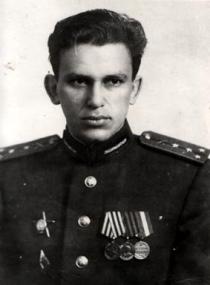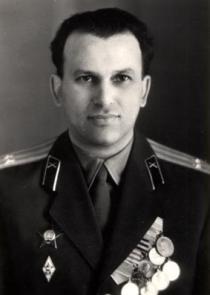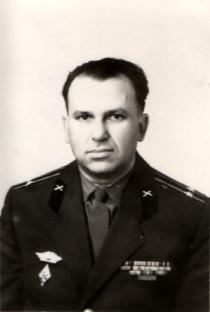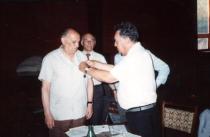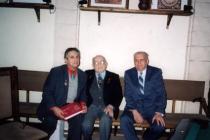This is me in the hospital after being wounded. 1st Ukrainian front, I do not remember which city. 1943. Red Star Order is on my chest.
When I was in the 9th grade, some militaries came over to our school to encourage boys to transfer to artillery specialized school, which was the first of the kind in Moscow. In 1937 professional military schools were founded in Moscow. The best students were selected there. In 1940 I was transferred there. We were taught major subjects in accordance with the syllabus as well as military artillery subjects. I found out about the outbreak of the war from Molotov's speech on the radio. I transferred to the 10th grade of the specialized school and was on vacation.
School started on the 1st of September as usual. The director of school told us to align and said that we had to study well as now was the time when literate officers were in great demand in our country. The 10th grade students were agog to go in the lines, but we were told to finish school first then he would have our chance to be in the action. Moscow was bombed. Special fighting battalion was established. We were on duty on the rooves of the houses during the attacks of German artillery, quenching fire bombs. Then the students of our school were taken out of town to fortifications, where we were supposed to dig moats. We went there early in the morning and late at night we came back.
There were rumors that the senior students our school would be sent to the lines. I was awaiting that. Then the commander of the school brought us together and said that Stalin told to prepare professional soldiers for a multiyear war. We should not go in the lines being half-educated, but study well. All out of 5 Moscow artillery schools got on the train and left for Siberia. Our specialized school came to Kemerovo. We settled in the hostel of some college and had classes there as well. Apart from studies we also were involved in coal mining works. Almost all men were in the front, but the country needed the coal. In spring 1942 we finished school and took the oath. Now we were true militaries.
100 people out of the 5 evacuated graduation classes of artillery schools were united in one battery and sent to Tomsk artillery school. Military school did not give us much apart from the soldier's staff- bed regime and marching. School gave us all necessary knowledge. When we were graduating Stalingrad Battle was about to finish. Germans were besieged by Stalingrad.
All of us newly-fledged lieutenants were sent to the front. We were dispersed in different cities. I was the senior officer of the battery. Our regiment was called SCR - supreme commandment reserve. The regiment was armed with 122-mm howitzer. It was heavy artillery. In 2 weeks our squad was sent to the north-western front. We appeared in the region Staraya Russa, in the vicinity of Demyansk. In Demyansk our troops besieged Germans but did not manage to do away with them as Germans broke through the siege. Our task was to exterminate German groups. I happened in the period of January-February 1943. We had fought in that area by spring and forced the river Glavat and took a defense position.
War is a daily hard labour. The artillery did not attack, but it did not mean that we were safe. We were frequently bombed by aviation and fired by the artillery of the adversary. German reconnaissance planes must have noticed our firing points. There were times when our positions were fired by the entire division over open sights. Of course, during the firing we hid in the shelter, but there were wounded. We lived in the dugs-out or in the huts. Sometimes we settled in the houses of the local citizens. There were all kinds of things.
Our battery consisted of about 100 people and 4 howitzers. The howitzer squad consisted of 8 soldiers and one commander. Battery commander was on the observation point and we fired from the closed firing positions as per his order.

